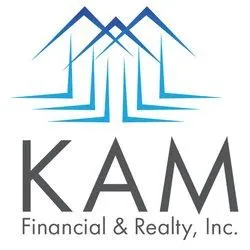
Stated Loan vs. Traditional Mortgage: Which One Works Best for You?
What Is a Stated Loan, and How Does It Work?
A stated loan is a type of mortgage that allows borrowers to declare their income without providing traditional proof such as tax returns, W-2s, or pay stubs. Instead of relying on standard employment verification, lenders assess financial stability using alternative documentation like bank statements, credit history, and assets.
These loans are particularly beneficial for self-employed individuals, business owners, and real estate investors who have strong earnings but may not report them conventionally. Since lenders take on more risk with stated loans, they often require a higher credit score, a larger down payment, and proof of financial reserves.
What Are the Key Differences Between a Stated Loan and a Traditional Mortgage?
The primary difference between a stated loan and a traditional mortgage lies in the income verification process. With a traditional mortgage, borrowers must provide full documentation, including pay stubs, tax returns, and employment verification. Stated loans, on the other hand, allow borrowers to state their income without submitting these documents.
While stated loans offer more flexibility, they typically come with higher interest rates and stricter credit requirements. Traditional mortgages, by contrast, offer lower rates and better terms but require extensive paperwork and a documented employment history.
Borrowers who are self-employed or have variable income often find it easier to qualify for a stated loan. However, those with a steady salary and strong credit history may benefit from the lower rates and more favorable terms of a conventional mortgage.
Who Qualifies for a Stated Loan in California?
To qualify for a stated loan in California, borrowers typically need a strong credit profile, a significant down payment, and proof of financial stability. While requirements vary by lender, most stated loans require:
A credit score of 660 or higher
A down payment of at least 20%
Consistent cash flow supported by bank statements
A low debt-to-income (DTI) ratio
Liquid assets or reserves to cover mortgage payments
These loans are ideal for self-employed individuals, freelancers, commission-based workers, and real estate investors who may not meet the strict documentation requirements of traditional mortgages. For those who need an alternative mortgage solution, bank statement purchase loans can also provide flexible financing options.
What Are the Benefits and Risks of a Stated Loan?
Benefits:
Requires less documentation compared to traditional mortgages
Allows self-employed borrowers to qualify more easily
Offers a faster approval process since fewer documents are needed
Provides flexibility for borrowers with non-traditional income sources
Risks:
Typically has higher interest rates than traditional loans
Requires a larger down payment to offset lender risk
May come with stricter credit score requirements
Can be harder to qualify for if the borrower lacks sufficient financial reserves
Stated loans can be a great option for certain borrowers, but it’s important to weigh the pros and cons before making a decision.

How Do Lenders Verify Income for a Stated Loan?
Since stated loans do not require traditional proof of income, lenders use alternative methods to assess financial stability. Some common verification methods include:
Reviewing 12 to 24 months of bank statements to analyze cash flow
Evaluating asset holdings, including savings, investments, and retirement accounts
Assessing credit history to ensure responsible financial management
Borrowers should be prepared to demonstrate their ability to repay the loan through consistent deposits, strong credit, and substantial reserves.
What Types of Properties Can Be Financed With a Stated Loan?
Stated loans can be used to finance a variety of property types, including primary residences, second homes, vacation properties, and investment properties. Some lenders may have restrictions on certain property types, so it’s essential to check specific loan requirements before applying.
For borrowers looking to finance a property that requires renovations, a 203k purchase loan may be a better alternative.
How Do Interest Rates for Stated Loans Compare to Traditional Mortgages?
Stated loans generally have higher interest rates compared to traditional mortgages due to the increased risk for lenders. While conventional loans offer lower rates for borrowers with strong credit and stable income, stated loans compensate for the lack of full documentation by charging higher rates.
Borrowers should shop around and compare offers from different lenders to secure the best terms. Additionally, improving credit scores and increasing the down payment can help reduce interest rates on stated loans.
Can Self-Employed Borrowers Benefit From Stated Loans?
Self-employed borrowers often struggle to qualify for traditional mortgages because their tax returns may not accurately reflect their true income due to business deductions. Stated loans allow these individuals to qualify based on their actual earnings rather than reported income.
By using bank statements instead of tax returns, self-employed borrowers can prove their ability to repay the loan without extensive documentation. For those considering a refinance, a bank statement refinance loan can provide similar benefits.
What Are the Alternatives to Stated Loans?
For borrowers who do not qualify for a stated loan, several alternative mortgage options are available:
Bank statement loans, which use 12-24 months of deposits instead of tax returns
DSCR loans, which allow real estate investors to qualify based on rental income rather than personal income (DSCR purchase loans)
Conventional loans with co-signers, where a financially stable co-borrower helps with qualification
Choosing the right mortgage depends on the borrower’s financial situation and long-term goals.
How Can You Apply for a Stated Loan in California?
Applying for a stated loan involves several key steps:
Find a lender that specializes in stated income loans
Gather financial documents, including bank statements, asset reports, and credit history
Submit a loan application and discuss available terms with a mortgage professional
Review loan offers to compare interest rates, fees, and requirements
Complete the loan process by finalizing paperwork and securing funding
Borrowers interested in exploring mortgage options can schedule a consultation with a loan expert to discuss their best financing options.


